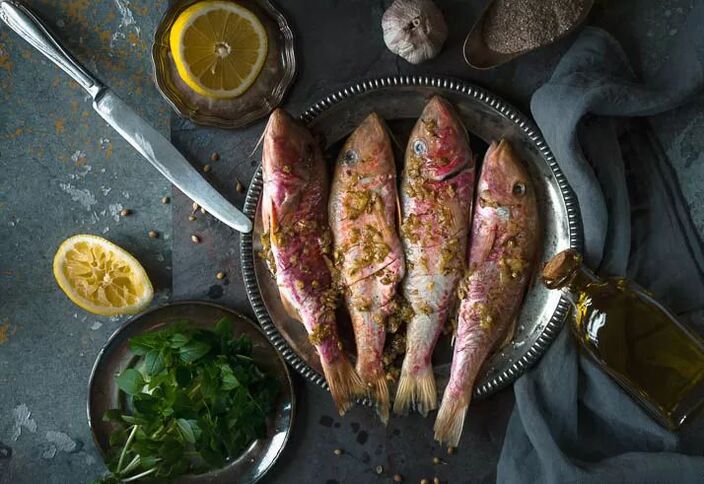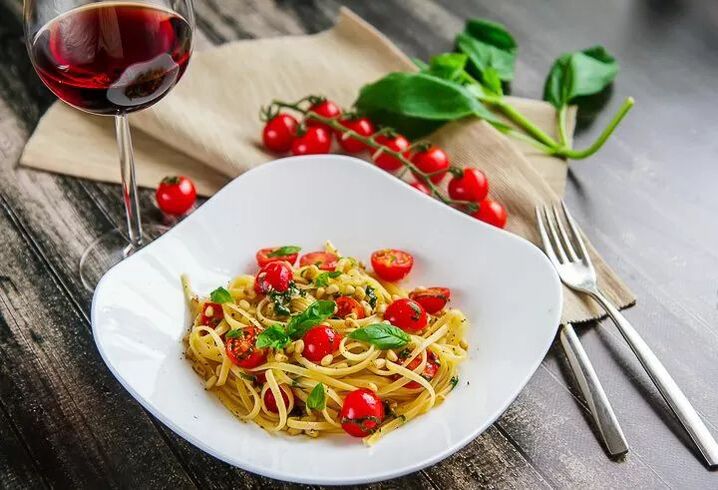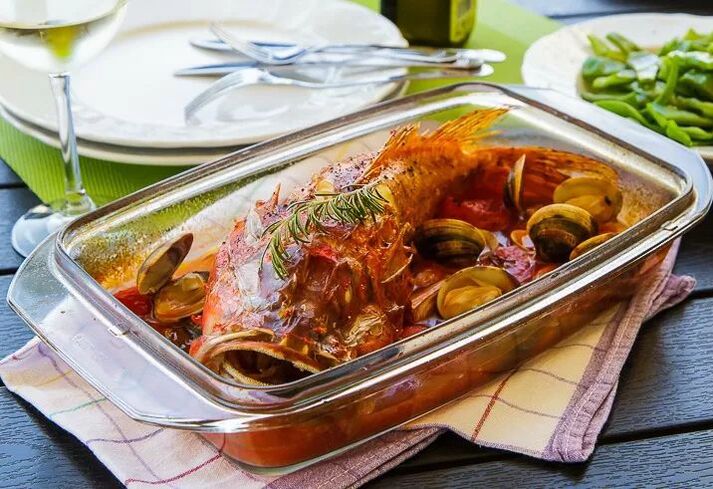Everyone has heard about the benefits of the Mediterranean diet. This term first appeared in the middle of the last century, when researchers found many similarities in the diet and lifestyle of the inhabitants of the Mediterranean countries, and linked thisfor the longevity and health for which they are famous.
Since then, the Mediterranean diet has been closely studied worldwide by both experts and people who want to build a healthy, balanced diet to live a long and happy life. What are the principles of the Mediterranean diet and how to create a menu in accordance with them, if you live not in Palermo but in other cities, read below.

The main rules of the Mediterranean diet
Today, the Mediterranean diet is a concept that has been formed based on the eating habits of the inhabitants of the Mediterranean coast. These habits have been analyzed and compiled into a convenient system that anyone can follow. In summary, the principles of the Mediterranean diet are as follows:
- Eat plenty of monounsaturated fats.Olive oil and other sources of monounsaturated fatty acids are widely used in cooking, providing up to one-third of total calories.
- Low meat consumption.Traditionally, meat in Mediterranean countries is eaten on special occasions rather than on a daily basis.
- Consume more fish and seafood.Marine protein sources in the Mediterranean diet act as a meat substitute and should be eaten quite frequently.
- Consume plenty of vegetables, fruits, legumes, nuts, and whole grains.Vegetable and vegetarian dishes have found a permanent place on the Mediterranean table thanks to the good climate, and the most popular dessert is fresh fruit.
- Average consumption of dairy products.The main dairy product consumed in the Mediterranean countries is cheese, it is no coincidence that the world's largest quantity of cheese can be found here.
- Average level of alcohol consumption.Mediterranean residents tend to drink alcohol regularly but in small quantities. Usually this is a glass of wine or two at lunch and dinner.
- Physical activity.Although this item is not directly related to diet, residents of Mediterranean countries tend to have an active lifestyle, spending a lot of time outdoors.
By taking these rules into account when compiling your daily menu, you can adhere to the Mediterranean diet, no matter where you actually live. What will it give? Fortunately, today there is more than enough research on this diet, so we can say with confidence.

Benefits of the Mediterranean diet
So, the Mediterranean diet:
- Promotes blood vessel activity, reduces the risk of cardiovascular diseases;
- prevents inflammatory processes and restores damaged cells;
- reduces the risk of cancer, as well as diseases such as diabetes, asthma, Alzheimer's disease and others;
Based on the general principles of the Mediterranean diet, WHO has developed dietary guidelines to reduce the risk of cardiovascular disease, and in 2010, UNESCO recognized the Mediterranean diet asnational cultural heritage.
Spanish scientists from the University of Las Palmas de Gran Canaria and the University of Navarra went even further, studying 11, 000 people and found that those who followed the above principles of the Indigenous dietTrung Hai in the most careful way has a 30% lower risk of depression compared to resting. However, the reasons for this are not completely clear, but scientists suggest that the reduced risk of depression is one consequence of the fact that foods included in the Mediterranean diet help improve mental function. vascular and anti-inflammatory properties.

If you want to start but don't know how
The benefits that the Mediterranean diet promises will make your head spin. Of course, there is hardly anyone who would not agree to reduce the risk of certain diseases, but it is quite difficult to change your diet at the same time, especially if you have never done this before. So below I will give some advice and recommendations for those who want to start eating a Mediterranean diet, and at the end of the article I will create a trial menu for the week as a first stepComing to a new life will not be affected. become so scary.
Here's what you should do first:
Buy olive oil
No, I'm sure you eat cold-pressed olive oil without my advice, but if sometimes you don't have it in the kitchen (or vice versa, the same bottle of oil is gathering dust in your cupboard) intwo, maximum three months), you can forget about the Mediterranean diet. Season salads with oil, pour over fresh and cooked vegetables, pasta, cereals, fish and dip bread in it. Good olive oil is a versatile condiment that goes with literally anything, so the key here is to get into the habit. But frying with high-quality and expensive oil only works when you cook at low temperatures, in other cases use refined vegetables or butter.
Eat olives
Everything is clear here. Olive oil is made from olives and olives themselves contain monounsaturated fatty acids which are very healthy. Eating seven olives a day is enough to get the full range of nutrients they contain. Fortunately, there are some difficulties with this, most adults love olives, but if this statement does not apply to you, add olives to salads, sauces, stews or cottage cheese.
Eat more fish
Forget the outdated recommendations that you should eat fish at least once a week. You should eat fish more often - at least 3-4 times a week, which means you should improve your skills in choosing, buying and preparing fish. When choosing between sea fish and river fish, priority should be given to sea fish; from wild fish and caged fish, wild fish should be chosen. Frozen fish, if defrosted properly, is not much worse than fresh, but much more affordable, and the recipes for fish dishes on this site will help you survive for a whole year in advance.
More vegetables, delicious and different
In the minds of many people, vegetables are salads or side dishes, and this idea needs to be changed urgently. Get into the habit of preparing one or two dinners a week made entirely from vegetables and legumes. I'm not advocating going plant-based - adding cheese or a little ham is fine - but by harnessing the potential of vegetables as a food, you'll start to enjoy it. Of course, it would be great if these were fresh and seasonal vegetables, but in winter, our pickles and pickles will fit perfectly into the Mediterranean diet. Is it in vain that they contain so many useful substances and vitamin C? . .
Delicious pasta
We have a biased attitude towards pasta, at best they are considered a side dish, at worst a source of body image problems. At the same time, in one of the countries that introduced us to the Mediterranean diet, Italy, pasta is considered the mainstay of local cuisine: it is served before the main course, after cold appetizers, called antipasti, i. e. "before pasta. " There is absolutely no point in exhausting yourself by eating a three- or four-course dinner a day - they haven't done that in a long time, right? even in Italy itself. But exploring pasta as a complete dish is well worth it. You can start with the classic Italian sauce recipe, giving preference to pasta made from durum wheat: they contain more nutrients and are easier to digest.

Eat less sweets
If you cannot imagine a day without cakes or pastries then it will be difficult for you to live. In the Mediterranean diet, dessert is often replaced with berries and fresh fruit, which contain fiber and several vitamins and nutrients. The good news is that you can eat fruit in reasonable amounts every day, but if you can't live without it, you're better off reducing your consumption of other sweets to once or twice a week. And of course, we're not talking about store-bought baked goods loaded with sugar and margarine.
Mediterranean diet: menu for the week
As I promised, the reward for the article will be the menu for the week, compiled according to the principles of the Mediterranean diet, but first some necessary explanations.
- Firstly, the combination of appetizers and main dishes is given based on my subjective opinion of good cuisine, there is no hidden logic in it and if desired, the dishes listed in the menu are available. can be shuffled arbitrarily.
- Second, the menu is designed for people who work 7 days a week, only dining at home on weekends. If this does not apply to you, shuffle similar dishes from the suggested menu or cook in reserve.
- Third, the menu is not tied to any particular season. If some of the products required for the suggested recipes are currently unavailable, you can - well, you get the idea! - mix up the menu seasonally.
- Fourth, do not be surprised if you see that the dishes on the menu at first glance do not correspond to your views on the diet of the inhabitants of the Mediterranean. In Italy, hardly many people eat cheese and sour cream for breakfast - however, these products are more suitable for the Mediterranean diet.
- Finally, if you want to substitute a dish or expand the suggested menu, study the recipe catalog.

Monday
Breakfast:
cheese with sour cream
Dinner:
fresh radish salad
fried cod and quickly stir-fried spinach
seasonal fruit or berries
Tuesday
Breakfast:
Natural yogurt with honey or jam
Dinner:
lentil soup
Cucumbers in the oven and salad of cucumbers and herbs in the garden
seasonal fruit or berries
Wednesday
Breakfast:
cheese with sour cream
Dinner:
Toast with grilled peppers and cheese
fish and rice with vegetables
seasonal fruit or berries
Thursday
Breakfast:
Sugar-free muesli with yogurt
Dinner:
minestrone soup
spaghetti with cherry tomatoes and basil
seasonal fruit or berries
Friday
Breakfast:
Natural yogurt with honey or jam
Dinner:
salad with squid and dill
Beef appetizer with pepper sauce and grilled vegetables
seasonal fruit or berries
Saturday
Breakfast:
Shakshuka
Dinner:
sea fish soup
Grilled squid with tomatoes
Dinner:
Caprese Salad
lamb with eggplant and bulgur with green beans
Figs with honey and rosemary
Sunday
Breakfast:
Homemade pies
Dinner:
grilled pepper soup
spaghetti amatriciana
Dinner:
fried shrimp with garlic
halibut in the oven and potatoes with rosemary
baked apple

Final
Many of us associate the word "diet" with a constant feeling of hunger and the need to limit our desires for the sake of some ephemeral result. But the Mediterranean diet is completely different. Where, if not in the Mediterranean countries, do they know so much about delicious food and the joy that comes from a delicious and leisurely lunch gathered around the family table? In fact, the Mediterranean diet is not a diet or a nutritional system. This is a lifestyle that promises health and longevity that each of us can follow.
I hope this article on the principles of the Mediterranean diet was useful to you and that you can easily plan your menu according to its principles. And to make this job even easier, you can use various recipe collections to help you find the right dishes.

































